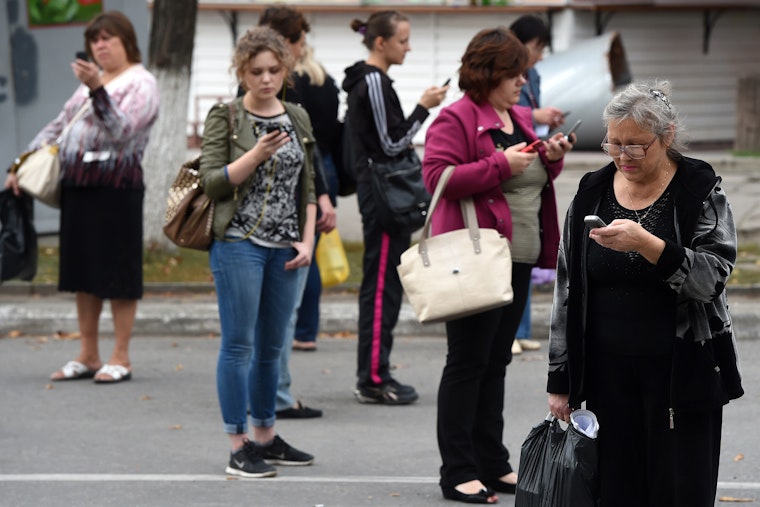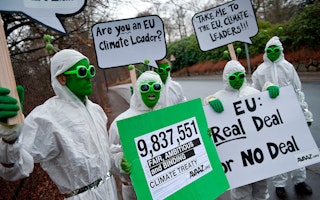The Real Question about EU Sanctions
By Tinatin Tsertsvadze

As a coup unfolds in Myanmar, violence against Uighurs continues in China, and a political crisis worsens in Belarus, many have urged Europe to impose sanctions. Within the foreign policy toolbox, sanctions are the most consequential instrument for punishing human rights violations. And they are increasingly evolving from a blunt instrument to a flexible and responsive one, focused on perpetrators. The EU’s new sanctions regime is the latest evolution, allowing the EU to step up its role globally in protecting human rights.
Over the years, the EU has moved from the blanket application of sanctions on economies and populations, which have hurt countless innocent civilians, to targeted financial sanctions. These targeted sanctions prevent foreign actors from doing business or banking with European companies.
In December of 2020, the EU took another step forward, rolling out the EU Global Human Rights Sanctions Regime, which allows Europe to more precisely target individual perpetrators and entities, by blocking them and their family members from traveling, and freezing any assets they might have parked in Europe.
Because economic and movement restrictions can be so disruptive to the wealthy autocrats pulling the strings, sanctions can prove highly effective. But to work, there needs to be clearly articulated reasons for listing and quality compliance monitoring—two areas where the EU still falls short.
Too often, perpetrators are removed from these lists without enacting meaningful changes, as in the case of Uzbekistan in 2009. Other times, European firms circumvent the sanctions, as when Siemens sold turbines to Russia in 2015, which it then installed in occupied Crimea.
It is a welcome development, then, that the European Commission has proposed a sanctions information repository, which will centralize the oversight and enforcement of sanctions. Within a few years, systemic non-compliance will be permitted to be tried in front of the European Court of Justice. These measures hopefully will address the current loopholes and discourage companies from attempting to circumvent the EU sanctions.
We are witnessing a global erosion of human rights norms and standards. Suppression of dissent; systemic violence against peaceful protesters; and outright authoritarianism is on the rise. Poor domestic accountability mechanisms are failing the victims, while international justice moves grindingly slow and is applicable only in a handful of cases. It is clear that in the coming years, calls for sanctions will rise.
But more is not necessarily better, and before imposing more sanctions, it is important that the EU do them well.
A centralized oversight mechanism on implementation and compliance will certainly be more challenging as it will require member states collaborate with Brussels. This is worth pursuing in the hopes for stronger sanctions enforcement.
Similarly, listing financial and economic enablers of repression will require a much higher level of evidence to prove the linkage between a human rights violation and those who financially enabled it. Without solid argumentation, such listings can be more vulnerable to legal challenges at the Court of Justice of the European Union. But civil society can play a role here by providing well-researched and -documented materials. And the result will be stronger, more effective sanctions.
Sanctions are certain to remain central to EU foreign policy in the coming years. If the EU can make these instruments as precise and effective as possible, tens of millions across the globe may see their lives improve.
Tinatin Tsertsvadze is a senior policy analyst with Open Society—Europe and Central Asia.


